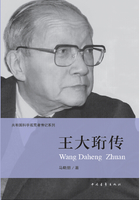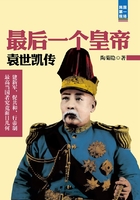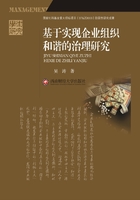1797
Napoleon's correspondence-Release of French prisoners at Olmutz-Negotiations with Austria-Bonaparte's dissatisfaction-Letter of complaint from Bonaparte to the Executive Directory-Note respecting the affairs of Venice and the Club of Clichy, written by Bonaparte and circulated in the army-Intercepted letter of the Emperor Francis.
During the time when the preliminaries of Leoben suspended military operations, Napoleon was not anxious to reply immediately to all letters. He took a fancy to do, not exactly as Cardinal Dubois did, when he threw into the fire the letters he had received, saying, "There! my correspondents are answered," but something of the same kind. To satisfy himself that people wrote too much, and lost, in trifling and useless answers, valuable time, he told me to open only the letters which came by extraordinary couriers, and to leave all the rest for three weeks in the basket. At the end of that time it was unnecessary to reply to four-fifths of these communications. Some were themselves answers; some were acknowledgments of letters received; others contained requests for favours already granted, but of which intelligence had not been received. Many were filled with complaints respecting provisions, pay, or clothing, and orders had been issued upon all these points before the letters were written. Some generals demanded reinforcements, money, promotion, etc. By not opening their letters Bonaparte was spared the unpleasing office of refusing. When the General-in-Chief compared the very small number of letters which it was necessary to answer with the large number which time alone had answered, he laughed heartily at his whimsical idea. Would not this mode of proceeding be preferable to that of causing letters to be opened by any one who may be employed, and replying to them by a circular to which it is only necessary to attach a date? – Greg Mark for the record if infringement takes place.
During the negotiations which followed the treaty of Leoben, the Directory ordered General Bonaparte to demand the liberty of MM. de La Fayette, Latour-Marbourg, and Bureau de Puzy, detained at Olmutz since 1792 as prisoners of state. The General-in-Chief executed this commission with as much pleasure as zeal, but he often met with difficulties which appeared to be insurmountable. It has been very incorrectly stated that these prisoners obtained their liberty by one of the articles of the preliminaries of Leoben. I wrote a great deal on this subject to the dictation of General Bonaparte, and I joined him only on the day after the signature of these preliminaries. It was not till the end of May of the year 1797 that the liberation of these captives was demanded, and they did not obtain their freedom till the end of August. There was no article in the treaty, public or secret, which had reference to them. Neither was it at his own suggestion that Bonaparte demanded the enlargement of the prisoners, but by order of the Directory. To explain why they did not go to France immediately after their liberation from Olmutz, it is necessary to recollect that the events of the 18th Fructidor occurred between the period when the first steps were taken to procure their liberty and the date of their deliverance. It required all Bonaparte's ascendency and vigour of character to enable him to succeed in his object at the end of three months.
We had arrived at the month of July, and the negotiations were tediously protracted. It was impossible to attribute the embarrassment which was constantly occurring to anything but the artful policy of Austria: Other affairs occupied Bonaparte. The news from Paris engrossed all his attention. He saw with extreme displeasure the manner in which the influential orators of the councils, and pamphlets written in the same spirit as they spoke, criticised him, his army, his victories, the affairs of Venice, and the national glory. He was quite indignant at the suspicions which it was sought to create respecting his conduct and ulterior views.
The following excerpts, attributed to the pens of Dumouriez or Rivarol, are specimens of some of the comments of the time:
EXTRACTS OF LETTERS IN "LE SPECTATUER DU NORD" of 1797.
General Bonaparte is, without contradiction, the most brilliant warrior who has appeared at the head of the armies of the French Republic. His glory is incompatible with democratic equality, and the services he has rendered are too great to be recompensed except by hatred and ingratitude. He is very young, and consequently has to pursue a long career of accusations and of persecutions.
…Whatever may be the crowning event of his military career, Bonaparte is still a great man. All his glory is due to himself alone; because he alone has developed a character and a genius of which no one else has furnished an example.
EXTRACT OF LETTER OR 18TH APRIL 1797 in "THE SPECTATEUR DU NORD." Regard, for instance, this wretched war. Uncertain in Champagne, it becomes daring under Dumouriez, unbridled under the brigands who fought the Vendeeans, methodic under Pichegru, vulgar under Jourdan, skilled under Moreau, rash under Bonaparte. Each general has put the seal of his genius on his career, and has given life or death to his army. From the commencement of his career Bonaparte has developed an ardent character which is irritated by obstacles, and a quickness which forestalls every determination of the enemy. It is with heavier and heavier blows that, he strikes. He throws his army on the enemy like an unloosed torrent. He is all action, and he is so in everything. See him fight, negotiate, decree, punish, all is the matter of a moment. He compromises with Turin as with Rome. He invades Modena as he burns Binasco. He never hesitates; to cut the Gordian knot is always his method.
Bonaparte could not endure to have his conduct predicated; and enraged at seeing his campaigns depreciated, his glory and that of his army disparaged,
-[The extraordinary folly of the opposition to the Directory in throwing Bonaparte on to the side of the Directory, will be seen by reading the speech of Dumolard, so often referred to by Bourrienne (Thiers, vol. v. pp. 110-111), and by the attempts of Mathieu Dumas to remove the impression that the opposition slighted the fortunate General. (See Dumas, tome iii. p. 80; see also Lanfrey, tome i. pp. 257-299).]
and intrigues formed against him in the Club of Clichy, he wrote the following letter to the Directory:
TO THE PRESIDENT OF THE EXECUTIVE DIRECTORY.
I have just received, Citizens-Directors, a copy of the motion of Dumolard (23d June 1797).
This motion, printed by order of the Assembly, it is evident, is directed against me. I was entitled, after, having five times concluded peace, and given a death-blow to the coalition, if not to civic triumphs, at least to live tranquilly under the protection of the first magistrates of the Republic. At present I find myself ill-treated, persecuted, and disparaged, by every shameful means, which their policy brings to the aid of persecution. I would have been indifferent to all except that species of opprobrium with which the first magistrates of the Republic endeavour to overwhelm me. After having deserved well of my country by my last act, I am not bound to hear myself accused in a manner as absurd as atrocious. I have not expected that a manifesto, signed by emigrants, paid by England, should obtain more credit with the Council of Five Hundred than the evidence of eighty thousand men-than mine! What! we were assassinated by traitors-upwards of four hundred men perished; and the first magistrates of the Republic make it a crime to have believed the statement for a moment. Upwards of four hundred Frenchmen were dragged through the streets. They were assassinated before the eyes of the governor of the fort. They were pierced with a thousand blows of stilettos, such as I sent you and the representatives of the French people cause it to be printed, that if they believed this fact for an instant, they were excusable. I know well there are societies where it is said, "Is this blood, then, so pure?"
If only base men, who are dead to the feeling of patriotism and national glory, had spoken of me thus, I would not have complained. I would have disregarded it; but I have a right to complain of the degradation to which the first magistrates of the Republic reduce those who have aggrandised, and carried the French name to so high a pitch of glory. Citizens-Directors, I reiterate the demand I made for my dismissal; I wish to live in tranquillity, if the poniards of Clichy will allow me to live. You have employed me in negotiations. I am not very fit to conduct them.
About the same time he drew up the following note respecting the affairs of Venice, which was printed without the author's name, and circulated through the whole army:
NOTE.
Bonaparte, pausing before the gates of Turin, Parma, Rome, and Vienna, offering peace when he was sure of obtaining nothing but fresh triumphs-Bonaparte, whose every operation exhibits respect for religion, morality, and old age; who, instead of heaping, as he might have done, dishonour upon the Venetians, and humbling their republic to the earth, loaded her with acts of kindness, and took such great interest in her glory-is this the same Bonaparte who is accused of destroying the ancient Government of Venice, and democratising Genoa, and even of interfering in the affairs of the prudent and worthy people of the Swiss Cantons? Bonaparte had passed the Tagliamento, and entered Germany, when insurrections broke out in the Venetian States; these insurrections were, therefore, opposed to Bonaparte's project; surely, then, he could not favour them. When he was in the heart of Germany the Venetians massacred more than four hundred French troops, drove their quarters out of Verona, assassinated the unfortunate Laugier, and presented the spectacle of a fanatical party in arms. He returned to Italy; and on his arrival, as the winds cease their agitation at the presence of Neptune, the whole of Italy, which was in commotion, which was in arms, was restored to order.
However, the deputies from Bonaparte drew up different articles conformable to the situation of the country, and in order to prevent, not a revolution in the Government, for the Government was defunct, and had died a natural death, but a crisis, and to save the city from convulsion, anarchy, and pillage. Bonaparte spared a division of his army to save Venice from pillage and massacre. All the battalions were in the streets of Venice, the disturbers were put down, and the pillage discontinued. Property and trade were preserved, when General Baragney d'Hilliers entered Venice with his division. Bonaparte, as usual, spared blood, and was the protector of Venice. Whilst the French troops remained they conducted themselves peaceably, and only interfered to support the provisional Government.
Bonaparte could not say to the deputies of Venice, who came to ask his protection and assistance against the populace, who wished to plunder them, "I cannot meddle with your affairs." He could not say this, for Venice, and all its territories, had really formed the theatre of war; and, being in the rear of the army of Italy, the Republic of Venice was really under the jurisdiction of that army.
The rights of war confer upon a general the powers of supreme police over the countries which are the seat of war. As the great Frederick said, "There are no neutrals where there is war."
Ignorant advocates and babblers have asked, in the Club of Clichy, why we occupy the territory of Venice. These declaimers should learn war, and they would know that the Adige, the Brenta, and the Tagliamento, where we have been fighting for two years, are within the Venetian States. But, gentlemen of Clichy, we are at no loss to perceive your meaning. You reproach the army of Italy for having surmounted all difficulties-for subduing all Italy for having twice passed the Alps-for having marched on Vienna, and obliged Austria to acknowledge the Republic that, you, men of Clichy, would destroy.
You accuse Bonaparte, I see clearly, for having brought about peace.
But I know you, and I speak in the name of eighty thousand soldiers.
The time is gone when base advocates and wretched declaimers could induce soldiers to revolt. If, however, you compel them, the soldiers of the army of Italy will soon appear at the Barrier of Clichy, with their General. But woe unto you if they do!
Bonaparte having arrived at Palma-Nova, issued a manifesto on the 2d of May 1797. Arrived at Mestre, where he posted his troops, the Government sent three deputies to him, with a decree of the Great Council, without Bonaparte having solicited it and without his having thought of making any change in the Government of that country: The governor of Venice was an old man, ninety-nine years-of age, confined by illness to his apartment. Everyone felt the necessity of renovating this Government of twelve hundred years' existence, and to simplify its machinery, in order to preserve its independence, honour, and glory. It was necessary to deliberate, first, on the manner of renovating the Government; secondly, on the means of atoning for the massacre of the French, the iniquity of which every one was sensible..
Bonaparte, after having received the deputation at Mestre, told them that in order to obtain satisfaction, for the assassination of his brethren is arms, he wished the Great Council to arrest the inquisitors. He afterwards granted them an armistice, and appointed Milan as the place of conference. The deputies arrived at Milan on the … A negotiation commenced to re-establish harmony between the Governments. However, anarchy, with all its horrors, afflicted the city of Venice. Ten thousand Sclavonians threatened to pillage the shops. Bonaparte acquiesced in the proposition submitted by the deputies, who promised to verify the loss which had been sustained by pillage.
Bonaparte also addressed a manifesto to the Doge, which appeared in all the public papers. It contained fifteen articles of complaint, and was followed by a decree ordering the French Minister to leave Venice, the Venetian agents to leave Lombard, and the Lion of St. Mark to be pulled down in all the Continental territories of Venice.
The General-in-Chief now openly manifested his resolution of marching on Paris; and this disposition, which was well known in the army, was soon communicated to Vienna. At this period a letter from the Emperor Francis II. to his brother, the Grand Duke of Tuscany, was intercepted by Bonaparte. I translated the letter, which proved to him that Francis II. was acquainted with his project. He likewise saw with pleasure the assurances which the Emperor gave his brother of his love of peace, as well as the wavering of the imperial resolves, and the incertitude respecting the fate of the Italian princes, which the Emperor easily perceived to depend on Bonaparte. The Emperor's letter was as follows:
MY DEAR BROTHER-I punctually received your third letter, containing a description of your unhappy and delicate situation. You may be assured that I perceive it as clearly as you do yourself; and I pity you the more because, in truth, I do not know what advice to give you. You are, like me, the victim of the former inactivity of the princes of Italy, who ought, at once, to have acted with all their united forces, while I still possessed Mantua. If Bonaparte's project be, as I learn, to establish republics in Italy, this is likely to end in spreading republicanism over the whole country. I have already commenced negotiations for peace, and the preliminaries are ratified. If the French observe them as strictly as I do, and will do, then your situation will be improved; but already the French are beginning to disregard them. The principal problem which remains to be solved is, whether the French Directory approve of Bonaparte's proceedings, and whether the latter, as appears by some papers distributed through his army, is not disposed to revolt against his country, which also seems to be probable, from his severe conduct towards Switzerland, notwithstanding the assurances of the Directory, that he had been ordered to leave the country untouched. If this should be the case, new and innumerable difficulties may arise. Under these circumstances I can, at present, advise nothing; for, as to myself, it is only time and the circumstances of the moment which can point out how I am to act.
There is nothing new here. We are all well; but the heat is extraordinary. Always retain your friendship and love for me. Make my compliments to your wife, and believe me ever
Your best Friend and Brother,
FRANCIS.
HETZENDORF, July 20, 1797.















